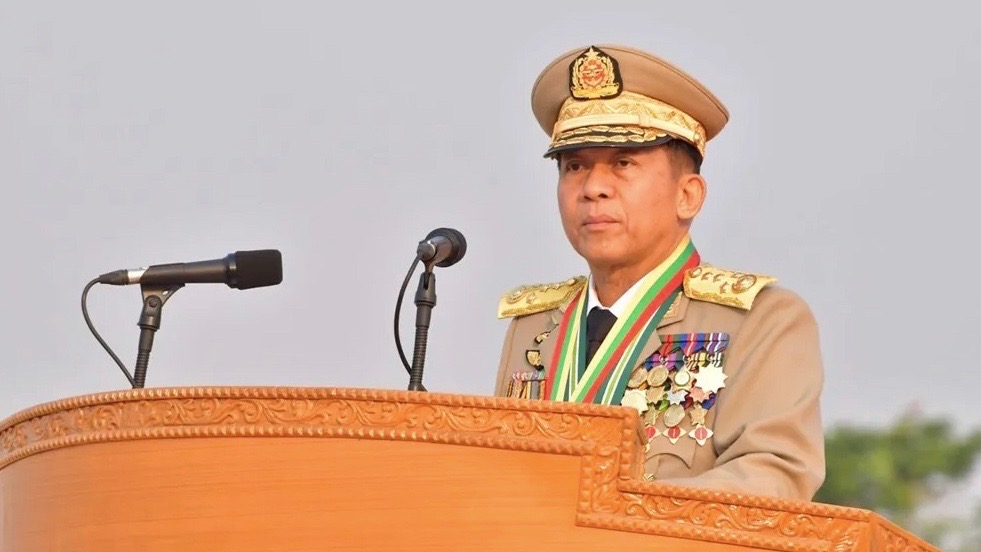On Tuesday, March 28, Myanmar’s military-appointed election commission dissolved Aung San Suu Kyi’s National League for Democracy (NLD) for failing to re-register under a new electoral law, state-run Myawaddy TV reported.
The announcement has invoked criticism from anti-coup and resistance groups, who claim that the junta is attempting to structurally remove any challenges before the next elections, which are still to be scheduled. UN Secretary General’s spokesperson Stéphane Dujarric raised concerns over the development, saying this was “another step in the direction that they would not like to be going into.”
After having initially proposed that elections be conducted by the end of July, military officials in February announced an extension in the state of emergency in the country by another six months, thereby delaying the possibility of elections in the near future. According to the International Crisis Group (ICG), elections are unlikely to take place before November 2023, and possibly not until January 2024.
Opposition groups have suggested that the coming polls, if conducted, will be an “illegal and sham election.” The NLD was among 40 parties that failed to meet the Tuesday deadline for re-registration, Myawaddy TV reported.
After winning a landslide victory in November 2020, the NLD faced the brunt of the military after it seized power in a dramatic coup in 2021. Apart from imposing heavy restrictions on communication and mass arresting thousands of people, the military junta also imprisoned the face of the NLD, 77-year-old Aung San Suu Kyi. She was subsequently convicted in a series of politically tainted prosecutions, and faces a prison term of 33 years.
Supporters of the NLD have suggested that the military has pushed to dissolve the party to stop its leaders from participating in elections.
In January this year, the military government led by General Min Aung Hlaing enacted a new electoral registration law, setting preconditions on the minimum level of membership, funding, and number of candidates, seen as an attempt to make it difficult for opposition groups to mount a challenge to the army’s favored candidates.
Political parties competing in national elections have been asked to attain a membership of 100,000 within three months of their registration, and also to open offices in at least half of the country’s 330 townships within six months.
Under the new law, the property of any dissolved political party will be transferred to the government. 63 political parties have so far applied to the election commission for registration this year, according to Myawaddy TV, of which 12 have applied to contest at the national level and 51 at the regional or state level.
The new electoral law also demanded that existing parties needed to register themselves with the election commission by March 28. Those parties that failed to reapply will be “automatically” deemed to be “invalid” and considered by the election commission as “dissolved.”
Myanmar’s political situation has been extremely volatile since the coup, with as many as 13,000 dissenters reportedly languishing in different prisons, and at least 100 individuals sentenced to death for opposing the legitimacy of the military’s rule.
Over this weekend, in Sagaing’s Budalin Township, at least seven civilians lost their lives in ongoing fighting between the anti-coup fighters and the military that resulted in the burning of at least 180 homes in Son Kone.
Amnesty International estimates that more than 1.5 million people have been internally displaced and at least 1,300 have been killed for participating in the series of mass protests that rocked Myanmar. Since 2021, over 70,000 people have also been forced to flee the country, fearing for their lives, according to estimates by the Assistance Association of Political Prisoners (AAPP).





